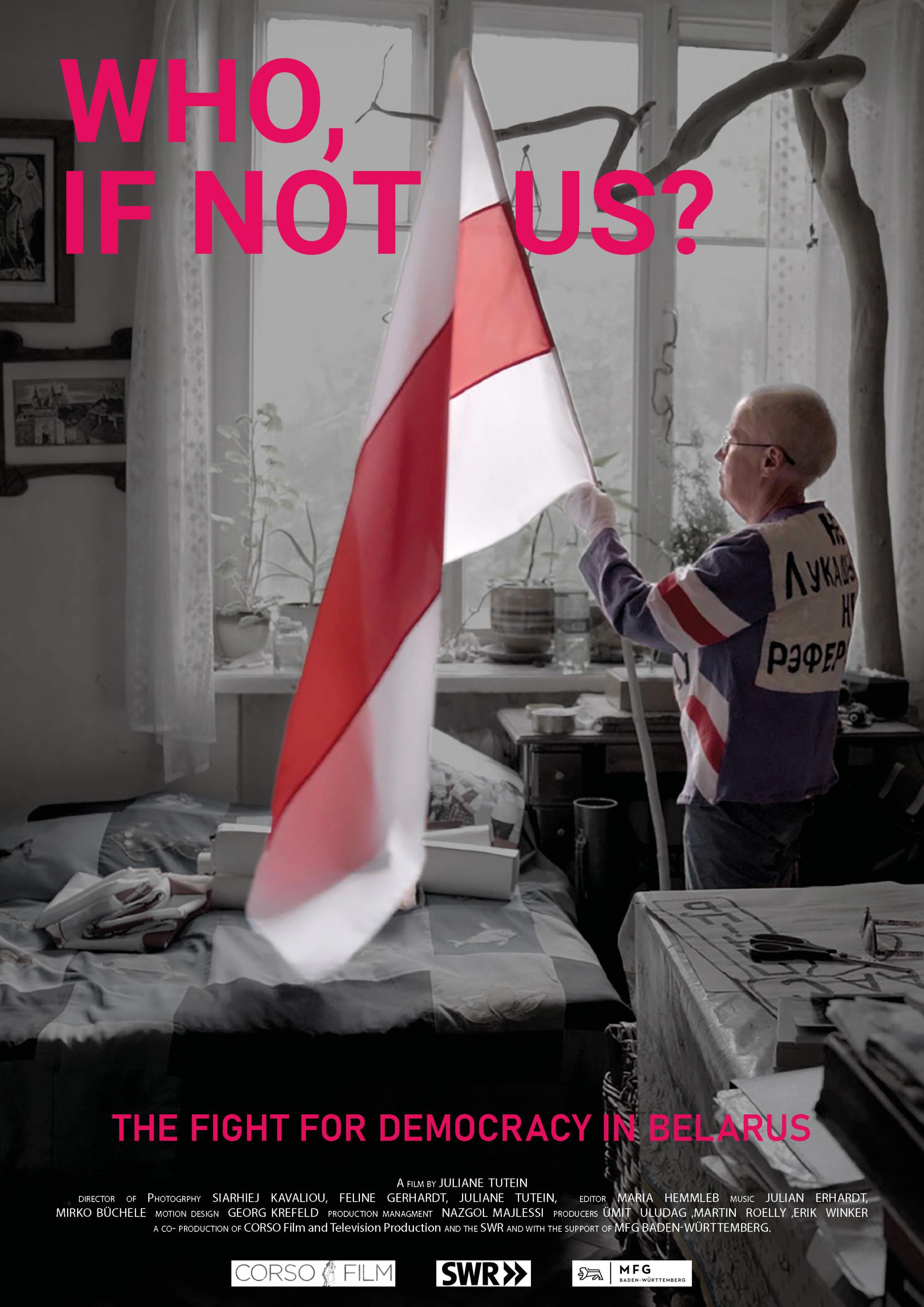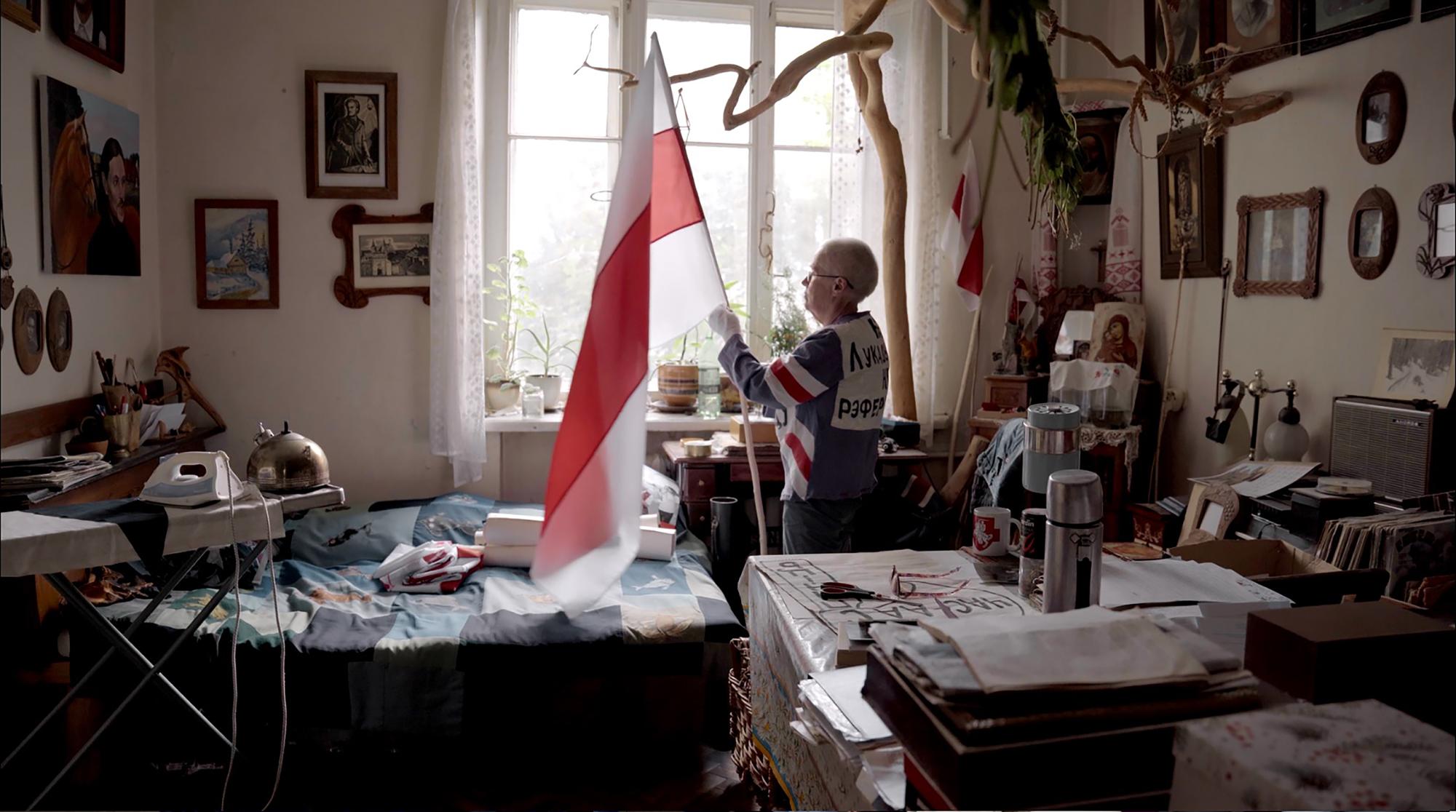

“Who, if not us?”: A Film Screening with Panel Discussion
The documentary by Juliane Tutein offers a powerful insight into the fight for democracy in Belarus, focusing on the lives of three women involved in the massive 2020 protests – the largest in the country’s history, which were brutally suppressed by the Lukashenko regime. Over the course of a year, the film accompanies these remarkable women across generations, united by their struggle for a democratic Belarus.
The film concludes against the backdrop of Russia’s devastating war of aggression against Ukraine, underscoring how closely the fates of Belarus and Ukraine are linked. It makes clear that Belarus, like Ukraine, can only have a democratic future as a free and independent neighbor of Europe.
Among those portrayed is 74-year-old Nina Baginskaya, a fearless activist who has protested since the 1980s and continues to take to the streets today. The film also follows Tatsyana Hatsura-Yavorska, founder of the human rights documentary film festival “Watch Docs Belarus”, who was imprisoned for her activism. The film shows how she continued to advocate for human rights despite intimidation, and was ultimately forced into exile.
The third woman, 22-year-old human rights activist Darya Rubleva, had to flee into exile to avoid imprisonment. From Vilnius, she campaigns for those in Belarus whose fates must not be forgotten.
Filmmaker Juliane Tutein, who has previously received multiple awards for her work on Belarus, brings us a compelling testimony to the strength of individuals fighting for democracy – often far from public attention, but no less courageously.
Venue:
LIBERECO – Partnership for Human Rights
Brunnenstraße 9, 10119 Berlin




